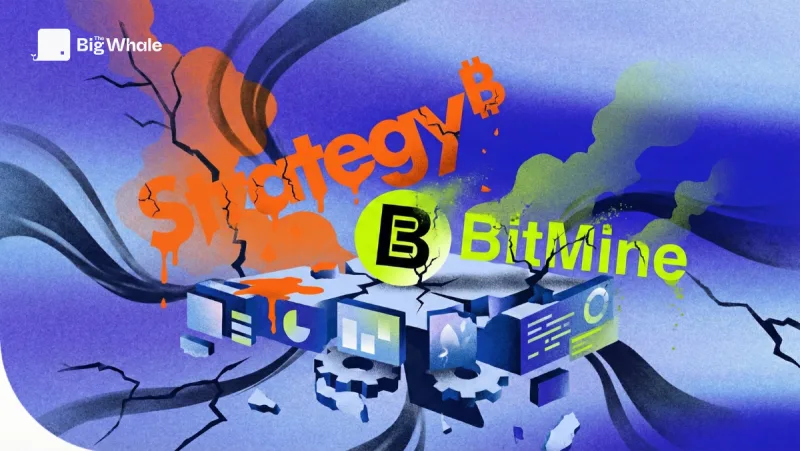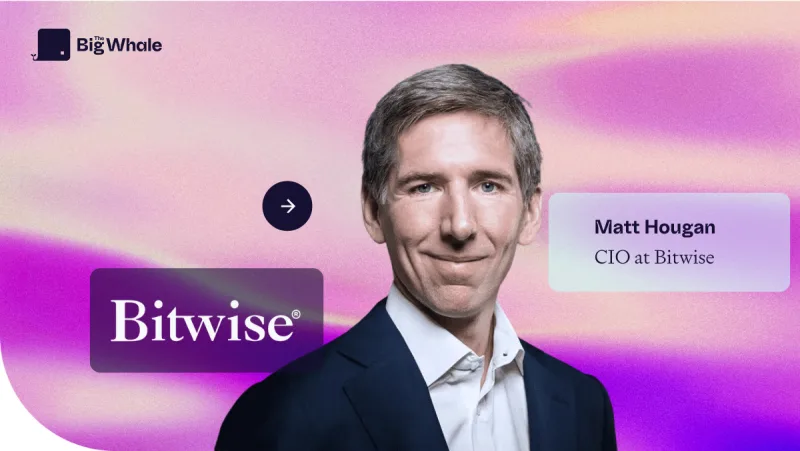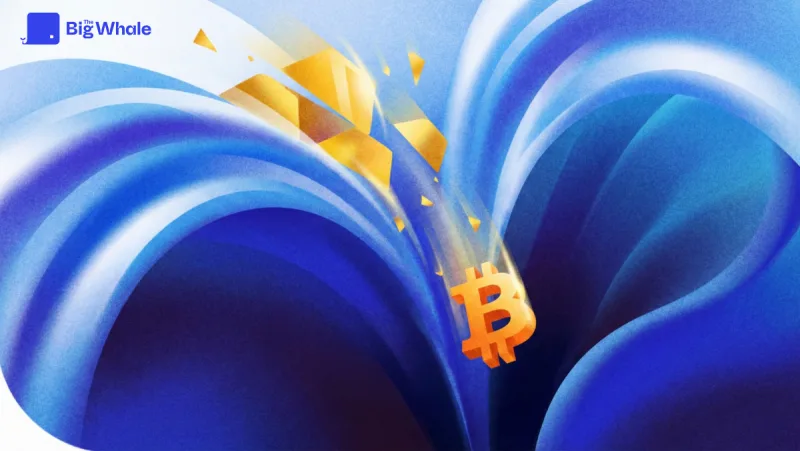TBW - Nigeria, Africa's crypto laboratory

Nigeria has established itself as the heart of the African crypto ecosystem. With a 99% awareness rate according to Consensys (a world record) and second place in Chainalysis' Adoption Index, the country is attracting all eyes. Between July 2023 and June 2024, it concentrated 47% of sub-Saharan Africa's on-chain activity, or $59 billion, 72% of which was in stablecoins.
But behind these impressive figures, the reality is more complex. In Nigeria, crypto is not primarily an innovation, but a response to the flaws in the financial system: international transfers, protection against inflation, savings alternatives. While adoption is massive, understanding remains uneven.
Many discover crypto via WhatsApp or Telegram, often through promises of quick gains. Adoption is real, but it is driven by economic survival rather than a considered strategy.
When crypto becomes unavoidable
The collapse of the naira goes a long way to explaining this shift. After depreciating 49% in 2023 and then 41% in 2024, the currency has fallen from ₦460 to ₦1,535 to the dollar in two years, a total loss of almost 70%. Keeping your savings in local currency means exposing yourself to an almost certain destruction of your purchasing power. "I keep less than 10% of my assets in naira. The rest is in cryptos and stablecoins," confides Lucy, a young professional.
This fall is reflected in everyday life: shopkeepers display their prices in naira, but think in dollars. Noodles sold for ₦400 one week may cost ₦800 the next, justified by the falling currency. Added to this is rampant inflation, which reached 33% in March 2024, and 32% for food, according to the IMF.
The younger, more connected generations understand that their future depends on alternatives. But even for them, access is not obvious. "I want to save in dollars via crypto, but I don't know where to start," admits student Emmanuel.
Distrust of the banking system reinforces this dynamic. After the policy of redesigning the naira, cash shortages multiplied, while the Central Bank imposed ceilings: ₦100,000 (66 dollars) per day for payments via terminals, ₦500,000 (333 dollars) per week for withdrawals.
"As soon as they think an amount is not appropriate for your account, they block it, without warning," recounts Tola, a young Nigerian.
Faced with arbitrarily blocked accounts and unexpected fees, many Nigerians are migrating to neobanks such as Palmpay, Moniepoint or Kuda, often linked to crypto wallets. The idea of "becoming your own bank" is appealing, despite the risks.
But crypto is not just about protecting savings: it also offers new sources of income. In a country with massive youth unemployment, many are turning to community management, forum moderation or airdrop 'farming'. These activities generate between $1,000 and $4,000 a month for some, in a country where the official minimum wage is $50.
For this generation, crypto is not a gamble, but a job.
And the diaspora is amplifying the phenomenon.
In 2024, Nigerians abroad sent $20.9 billion in remittances. Traditional fees (on average 7% for $200) make stablecoins far more attractive: instant, virtually free and accessible on a simple phone.
Freelancers and digital workers, often paid in dollar stablecoins, use P2P platforms like Binance or Bybit to convert their income, bypassing banks altogether.
>> Check out our dashboard dedicated to stablecoins
Adoption limited to young people working for international companies
Despite spectacular numbers, crypto is not a mass phenomenon in Nigeria.
Recognition is strong, but everyday use remains limited. Only a specific fringe is getting to grips with it: connected young people, often freelancers or employed by international companies, who receive their payments in stablecoins. Not out of decentralised militancy, but because it's the only reliable way of getting paid and escaping the collapse of the naira.
For the majority, technological complexity remains an obstacle. Adoption only happens when there is a direct incentive. The most striking example came in 2024, with the explosion of Telegram mini-apps linked to the TON network: lured by the promise of airdrops, thousands of Nigerians were introduced to crypto, not out of conviction but out of opportunism. This logic of incentives before infrastructure creates partial users, vulnerable to scams.
>> Telegram's TON blockchain analysis
The scandals have left their mark. In 2022, several local celebrities, including singer Davido, launched tokens that they quickly liquidated, leaving their fans disillusioned. Distrust is still rife, fuelled by a long history of Ponzi schemes and hesitant regulation.
However, local adaptations do exist. Traditional savings systems, the ajo or esusu, are now being transposed on WhatsApp and Telegram into USDT stablecoins, proof that crypto can take root in cultural usage.
Nigeria is therefore "crypto-aware" but not yet "crypto-ready". To take the plunge, it will be necessary to strengthen education, build trust and make the tools accessible.
Developers as relays
In the face of these blockages, a new generation of builders is standing out. Their approach is pragmatic: solve everyday problems, reduce friction and secure transactions.
When Binance suspended naira trading, many thought the local market would collapse. Instead, local solutions have emerged. Azza, founded by Tochukwu Okoro, converts cryptos into naira via WhatsApp using an AI agent. Blockradar, Cryptonia and Paycrest also offer fast, secure exits adapted to mobile.
"Nigeria remains fertile ground for building crypto infrastructure, despite the obstacles," sums up Morgan Williams, COO of Blockradar.
The stablecoin cNGN illustrates this pragmatism. Designed by Adedeji Owonibi, it is backed by naira, guaranteed 1:1 and available on Ethereum, Base or BSC. Unlike eNaira, the failed central bank digital currency (MNBC), cNGN was conceived as a bridge between banks and crypto, and is already listed on regulated exchanges Busha and Quidax.
Behind these initiatives, Nigeria is seeing a real surge in the number of its developers: they now account for 3% of the world's Web3 workforce, according to Hashed Emergent.
Collectives such as Web3Bridge, Web3Ladies and SuperteamNG are training and supporting the new generation. Base, through its Incubase programme, supports West African builders with funding and access to its global network.
>> Analysis of Base, Coinbase's blockchain
The ecosystem is also fuelled by international support: Solana finances projects such as Ribh Finance, while protocols such as Starknet, Celo or Algorand multiply local initiatives.
The challenges remain heavy: power cuts, unstable internet, uncertain regulatory climate. But the Nigerian builders are designing lightweight applications adapted to 3G and seeking to secure local licences to inspire confidence. Their ambition is not to revolutionise the system, but to meet immediate needs: paying, transferring, saving.
Building on shaky ground
In Nigeria, regulation remains shaky ground, but it has changed a lot since the outright ban in 2021, when the Central Bank (CBN) ordered banks to close crypto-related accounts. Far from slowing adoption, this measure accelerated the rise of P2P markets.
Faced with the scale of the phenomenon, the authorities changed course at the end of 2023. Under pressure from local fintechs and international organisations, the CBN adopted a "regulate to innovate" strategy: service providers (VASPs) could now register if they complied with KYC, traceability and anti-money laundering rules. In 2024, only two platforms, Busha and Quidax, obtained a licence via a fast-track programme.
The real turning point came in early 2024 with the reform of the Investments and Securities Act (ISA), which enshrined cryptos in law for the first time. Classified as securities, they were placed under the control of the Nigerian SEC. The result: a 10% capital gains tax, double that applied to equities, and up to ten years in prison for Ponzi scheme organisers.
The ecosystem has reacted by adapting. Busha and Quidax have made compliance an asset. Blockradar has integrated regulatory reporting tools. The cNGN has been developed in supervised sandboxes and has won the support of several banks. Some platforms are moving part of their services to WhatsApp or Telegram to limit exposure to the banking system. Programmes such as Web3Bridge or Incubase even include compliance training modules.
This framework remains imperfect: for some, it marks a step forward and promises to attract serious capital; for others, it remains too cumbersome and discouraging. Nigeria is therefore moving forward hesitantly, but with a clear desire to regulate crypto instead of ignoring it.
The price of participation
Despite these efforts, the user experience remains risky. For most Nigerians, getting into crypto means navigating a minefield. Attacks and scams are so common that it's hard to recommend crypto as a savings solution.
The use of P2P illustrates this ambiguity. A worker paid in USDC by a foreign employer often entrusts his funds to a trusted dealer on WhatsApp, praying that the transaction will go through. Most of the time, the money arrives quickly, but with no guarantee.
Platforms like Bybit offer more security thanks to clearing house systems (Bybit P2P), but they are slower and less convenient. Many people therefore choose speed, at the cost of constant risk.
This logic of personal trust opens the door to scams. In 2025, the "Cbex" affair made its mark: this platform promising AI-based crypto trading attracted 600,000 Nigerians before disappearing with the equivalent of $840 million. Most of the victims were adults who had been persuaded by those around them.
In addition to these risks, there are structural problems: an unstable Internet, international applications that are poorly adapted to local networks, and arbitrary blocking of bank accounts. The prolonged arrest of a visiting Binance executive has also chilled the whole ecosystem, driving some of the best talent to Dubai or more welcoming African countries.
In these conditions, mass adoption seems out of reach. Without enhanced security, tools adapted to local realities and a massive education effort, crypto will remain the preserve of a minority prepared to live with the risk.
What now?
The future of crypto in Nigeria remains uncertain. Regulation remains unclear, confidence fragile. But one tenacious conviction drives the ecosystem: there is energy and potential here that it would be a shame to let slip away.
The future will probably not come through sudden breakthroughs, but through patient work: simplifying the user experience, adapting tools to local realities, protecting users and making technology more understandable. For Nigerians, this means moving beyond the idea that "crypto is money" and seeing it as a toolbox for earning, sending, saving, building and participating. For the builders, this means prioritising usefulness over rapid growth, staying grounded in concrete uses and designing with empathy.
Nothing can be taken for granted. The structural flaws (faulty networks, fragile political framework, economic and social risks) are very real. But the energy, talent and urgency are just as real. The media hype will eventually fade. The hope will remain. And, as the difficulties give way, opportunities will emerge through patient adaptation.
This is where the real horizon for crypto in Nigeria lies: not in spectacular promises, but in building simple, secure and useful tools, designed for those who need them most.



